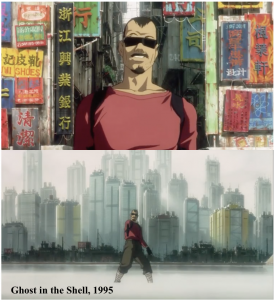
In his essay ‘Building on Disappearance’, Akbar Abbas explored the disappearance of the city and the current self-definition dilemma. This dilemma is played out in space: while the Empire faded, centuries of influence and subjugation persist in the very streets of this multicultural ‘future’ city dominated by intersections of old and new, or more cliché East and the West. He contended that new challenges are present in Hong Kong’s extensive search for identity amid the rubble of British colonialism and the ongoing political integration with China. In his eyes, the irony lies where the very people of Hong Kong avoid daily eye contact with their city while they allude to the new cultural mood that ‘registers the urgent need to have a cultural identity’ (Abbas, p.p. 76). He further argued that recent attempts to preserve seemingly failed: in this city layered with cultural memories, the mere ‘preserving’ or ‘keeping’ could only create a new heterotopia: nondescript, misrepresented, chaotic, and odd in the sense that history and modernity joined hands without integration (as in the case of Hong Kong Cultural Centre).
While Hong Kong is being caught in the unprecedented identity crisis, movies like Ghost in the Shell offer a new perspective to perceive the space and identity of a metropolis. In the movie, the cyborg protagonists, set against the city where they reside in, often question their identities. This special arrangement implicitly paralleled the city and the shell, the spirit and the ghost. But does this architectural representation of Hong Kong really construct her identity? Besides, the most famous three-minute montage pose another question to us: when do we really mean by Hong Kong’s identity when she is in the state of constant dynamics and cultural integration?
Perhaps what defines Hong Kong is her openness to all styles and influences. Hong Kong will never disappear in history as an unrecognizable replica that only evokes a sense of déjà vu. Rather, the gradual evolution of her urban landscape revives the city, reminding us of the local, the anonymous, and the voiceless constructs of collective memory.
By Dong Yuqi Kiki (UID: 3035447879)
Great analogy you made between the ghost and the shell; the displacement between the growth of the spirit and the development of the city. The director and artist have created a fictional city with a close reference to Hong Kong through the elements of real, surreal and hyperreal. Abbas has mentioned that cinema has a way to reflect its city, do you think Ghost in Shell (1995) has represented an identity of Hong Kong? Great choice of image!